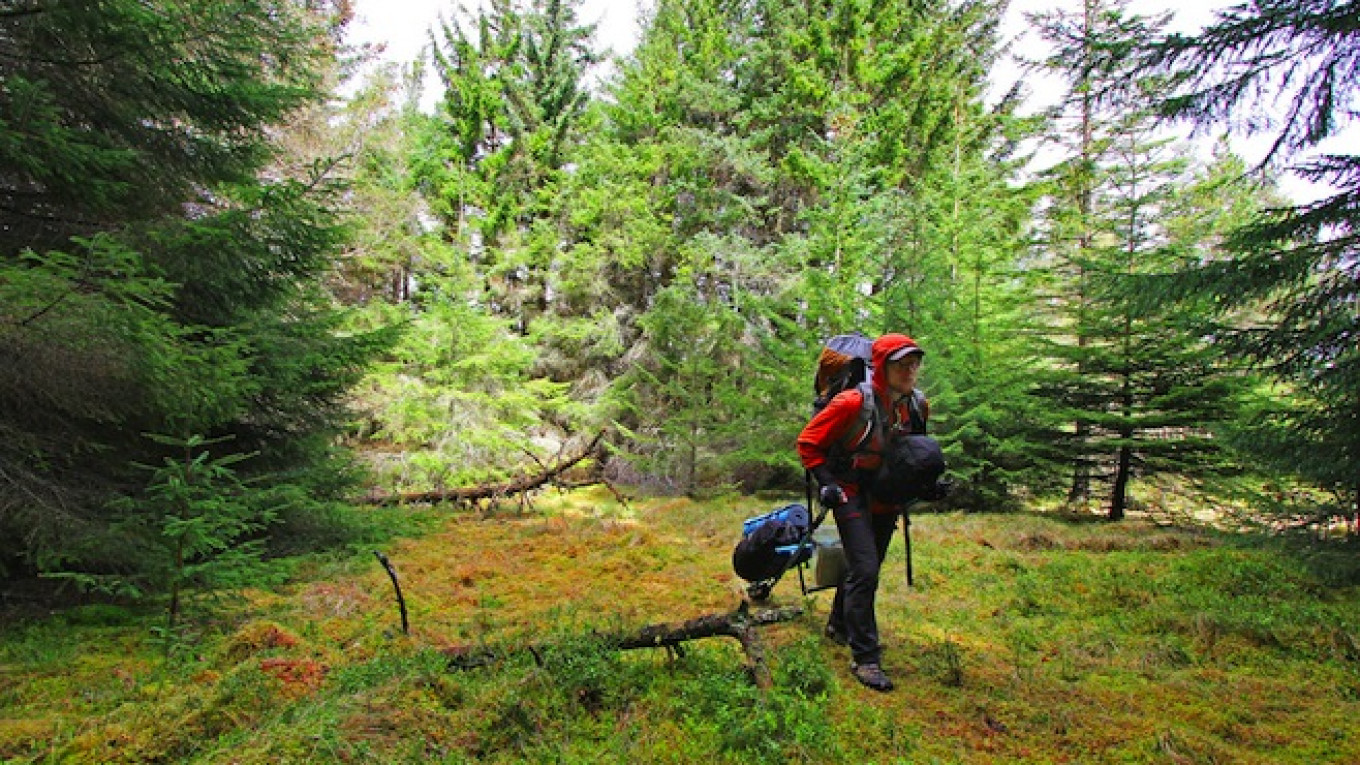On July 15, Matthew Traver, a British-American filmmaker, is taking off on a 10,000-kilometer journey in an attempt to become the first man of this generation to cross Siberia without a vehicle. At the age of only 29, Traver has already traveled through some of the most remote parts of the world — the jungles of Malaysia, the mountains of Greenland, Kyrgyzstan and Afghanistan, and the steppes of Central Asia. But his "Crossing Siberia" project is the longest, and may be his most challenging venture.
Over three years, Traver will travel over unmapped areas on foot, raft and skis. The journey will begin in Kyzyl of the republic of Tuva and end at the farthest point of Siberia, Cape Dezhnev. The covered distance is equal to the distance from London, England to Cape Town, South Africa. In an interview with The Moscow Times, Traver noted that he might go up to three weeks at a time without seeing anyone. "I cannot be entirely sure on what is out there — I guess that's my reason for going, to see if Siberia is as sparsely populated as I think it is. I think I will be quite surprised."
Inspired by Ivan Moskvitin, a Cossack explorer of the 17th century and the first Russian to reach the Pacific Ocean, Traver wants to experience the journey of his predecessors who completed the same path without 21st-century technology. Although he will have modern technology, such as a GPS and a satellite cellphone, Traver will largely rely on the antique maps of early explorers to guide him through the little-known trails of Siberia.
"A big basis for my trip is to unveil the history of Russian exploration, what it took to expand Russia and Siberia into what it is today — the world's largest country. I am interested first and foremost to travel along the old river routes, which were the primary means for Russians to explore and conquer the east into Siberia."
Water won't be a problem on the trip, since Traver has charted his path to follow rivers and lakes. Food, on the other hand, may pose a challenge. "I have enough food to sustain me for three weeks. I am sure there will be hungry moments," he admitted. For those moments, Traver plans on using a string and a hook for fishing and pine needles for a nutritious tea.
Since every one of the 55 kilograms he's carrying must serve a purpose, Traver is bringing along only two personal items — a stack of photographs from his past travels and a small stuffed duck from his sister. With only basic knowledge of Russian, Traver will use the photographs to communicate with the people he encounters along the way, as well as show them corners of the world they haven't seen.
On this trek, as on his previous trips, Traver will be shooting a film. "Crossing Siberia" is a documentary film project, which will record Traver's multi-year expedition across the world's largest wilderness.
The first stage, ending at Lake Baikal, will capture the basic challenges of the Siberian wilderness — the cold, the isolation from civilization and the unpredictable ways of nature.
The second stage will focus on the culture of each region of Siberia, as told by the stories of the people themselves. On the third stage, Traver will need the help of the Chukchi, the indigenous people of Siberia, to guide him through the remaining 4,000 kilometers of mountains and taiga to the edge of the Eurasian continent.
Just before setting off, Traver said, "It's good to be a little scared. It's natural. It is safer to be scared. Over-excitement kills caution, and I must be cautious in order to be able to unravel the story of Siberia and its people."
Matthew Traver's journey can be followed through his Facebook page or website.
A Message from The Moscow Times:
Dear readers,
We are facing unprecedented challenges. Russia's Prosecutor General's Office has designated The Moscow Times as an "undesirable" organization, criminalizing our work and putting our staff at risk of prosecution. This follows our earlier unjust labeling as a "foreign agent."
These actions are direct attempts to silence independent journalism in Russia. The authorities claim our work "discredits the decisions of the Russian leadership." We see things differently: we strive to provide accurate, unbiased reporting on Russia.
We, the journalists of The Moscow Times, refuse to be silenced. But to continue our work, we need your help.
Your support, no matter how small, makes a world of difference. If you can, please support us monthly starting from just $2. It's quick to set up, and every contribution makes a significant impact.
By supporting The Moscow Times, you're defending open, independent journalism in the face of repression. Thank you for standing with us.
Remind me later.






